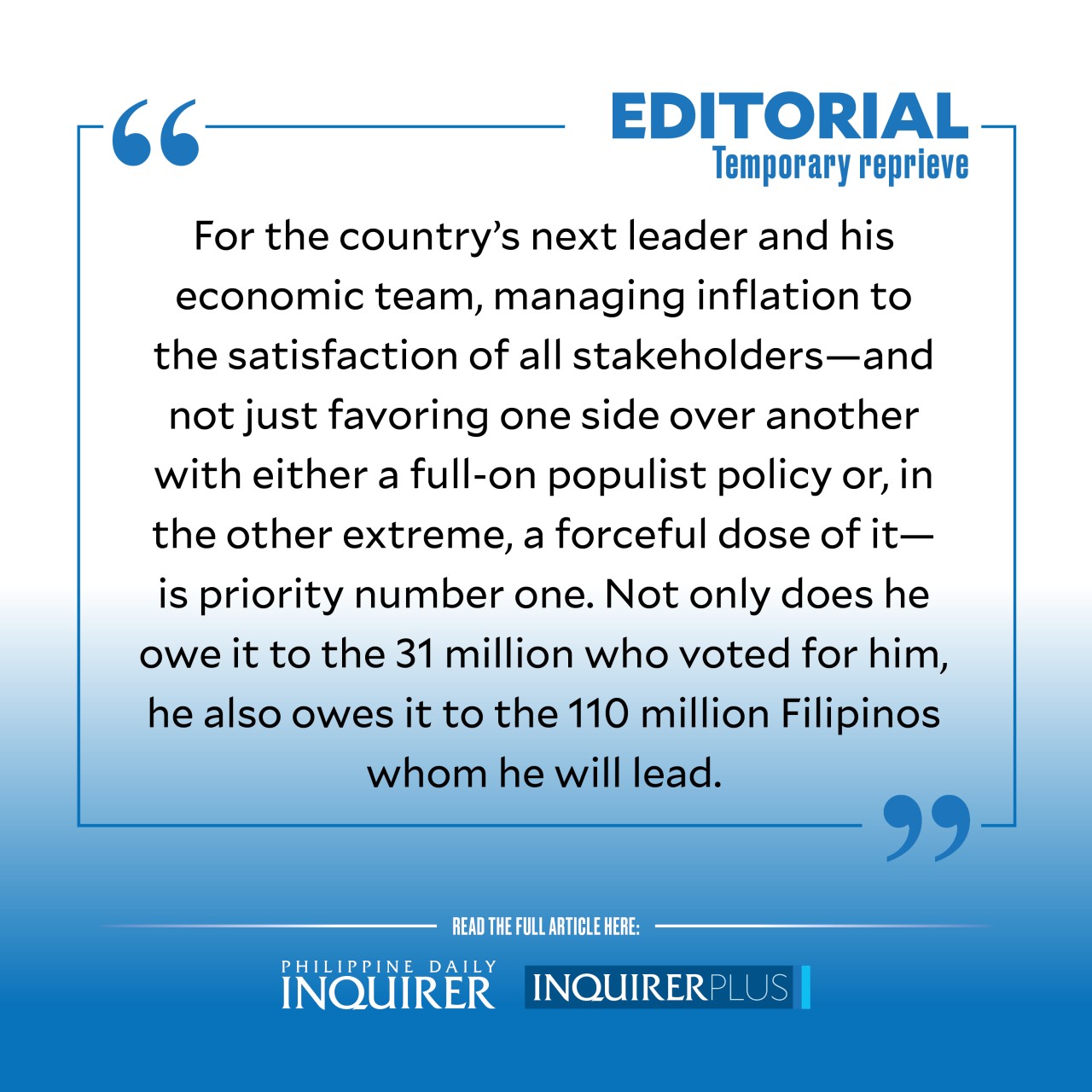Temporary reprieve
Some Filipino workers hardest hit by the upward spiral of consumer prices gained a reprieve last week after the tripartite wage boards of the National Capital Region and Western Visayas granted 6.1 percent and 13.9 percent hikes, respectively, in their minimum daily salaries.
Meanwhile, the basic wages of workers in other parts of the country where the costs of living are lower, and ostensibly less affected by the relentless increase in inflation, remained unadjusted for now.
Article continues after this advertisementThe militant Kilusang Mayo Uno, as expected, derided the minimum wage hike as insufficient. Another group, Sentro, described it as “woefully inadequate,” and even the more moderate Trade Union Congress of the Philippines said the increase was “ridiculously low and unfair to workers.”
No doubt they are correct, and no doubt the economic crunch of the last two years — partly caused by the pandemic and partly caused by geopolitical upheavals like Russia’s invasion of Ukraine — has been harsher on Filipinos living in the lower strata of society.
But here’s the thing everyone has to consider: The issue of wages does not exist in a vacuum. Wages are part of a bigger equation which includes issues like productivity and the market’s demand for the products workers make and the services they offer.
Article continues after this advertisementDespite the apparent growth of the Philippine economy as reflected in the 8.3-percent spike in the first three months of 2022 — a substantial part of it due to the relatively lower base established by the weakness of the last two years — the country’s recovery is still very much in a nascent stage.
This means that many companies, especially those small and medium enterprises that employ over 90 percent of the country’s workers, remain in precarious financial positions. After being pummeled by the pandemic that began in 2020, many remain just days away from missing a payment to their creditors, suppliers, and workers.
All this is to say that the wage issue is far from over. Given expectations that inflation will remain elevated over the near term, it is likely that workers will soon be banging on the doors of their employers once more demanding a more decent wage. And given the business challenges that rising interest rates — necessary to fight off inflation — will bring, expect employers to push back on these demands.
The other unsavory aspect of the relationship between wages and prices is that they often feed on each other to amplify each other’s worst traits. Rising prices cause workers to demand higher wages which, once granted, cause prices to soar even further, perpetuating the entire cycle.
This means that, for now, workers are unlikely to receive the larger wage hikes they’re clamoring for, while employers cannot get away with granting no wage hikes at all.
Ideally, the legitimate positions of both sides will result in a continued give and take process that would, ideally, see a little of give and take toward reaching an agreement in the center of either extremes.
This is the delicate economic situation that the incoming administration of presumptive president Ferdinand “Bongbong” Marcos Jr. will be facing — one that cannot be solved by quick-fix solutions and where stopgap measures will only result in temporary reprieves that will see the same problems reemerge down the road.
It is, therefore, incumbent upon the country’s next leader to task his economic team with finding long-lasting answers to the economic conundrum of higher inflation, higher interest rates, and possibly lower growth that the country will be facing over the next six years.
The only way to address these issues will be to continue implementing difficult reforms that may make the people unhappy over the short term, as most bitter pills do when an ill patient needs to swallow them.
In particular, structural reforms need to be made in bringing down the cost of food, like pushing ahead with the proposal to liberalize the importation of livestock, while being cautious about sidestepping the pitfalls that beset the implementation of the rice tariffication law.
It bears remembering that economics is often described as the process of allocating limited resources to satisfy, as much as possible, the unlimited wants or needs of society’s stakeholders.
For the country’s next leader and his economic team, managing inflation to the satisfaction of all stakeholders—and not just favoring one side over another with either a full-on populist policy or, in the other extreme, a forceful dose of it—is priority number one. Not only does he owe it to the 31 million who voted for him, he also owes it to the 110 million Filipinos whom he will lead.
















